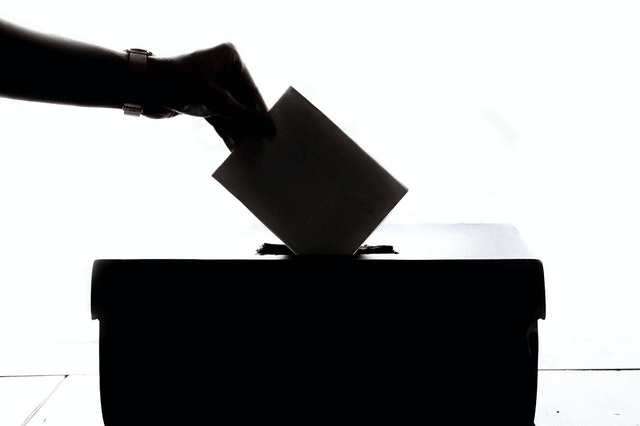Damilola Agbalajobi, Obafemi Awolowo University
Election campaigns are an important aspect of the democratic process in Nigeria. They give voters a chance to learn what a candidate or party stands for.
In Nigeria, according to the Electoral Act 2022, election campaigns start six months before the election. The country goes to the polls in February and March this year, so campaigning began on 28 September 2022.
The last day of campaigns for the presidential and national assembly elections is 23 February 2023 and the last day of campaigns for the governorship and state assembly elections is 9 March 2023.
Candidates vying for the office of the president have been advertising in the media, stating their plans on various platforms. There have also been rallies and marches. Colourful posters adorn Nigeria’s streets, showing candidates decked out in their various traditional attire.
As a political scientist who has studied election campaigns in Nigeria, I’ve got some personal likes and dislikes about them. This time, I’m glad to see citizens taking more interest in the elections than before. But I wish the campaigns were more informative.
Negative aspects of election campaigns
Top of my list of dislikes is disinformation, misinformation and fake news. When you listen to most of the campaign managers of most of the political parties, you hear them propagating false information to discredit their opponent. This can influence public opinion negatively. This is not good.
I also dislike the way campaigners turn each other into adversaries. Looking at the three major political parties contesting the presidential election, emphasis has been placed on the candidates and not the issues at stake or what they will do if elected. An example of the threatening way they speak is a state party chairman who said his party would win by “hook or crook”. Another said voters who failed to vote for his party would be dealt with.
Party politics with no benefit to the general populace is another “dislike.” Political office holders only return to the people when seeking office. Once they get into power, they forget the people who have voted for them. A House of Representatives member was stoned in Taraba State, north-east Nigeria, for abandoning his constituents, who vowed not to vote for him again.
Self centredness is now the order of the day. I’m talking about how political office holders use their offices to satisfy personal needs at the expense of those who voted them into office. Why should they wait till the election period before making basic social services available to the people? It is sad that we only see people getting welfare packages at election time.
Another unfortunate aspect of electoral campaigns in Nigeria is that people tend to look to politicians to solve all their problems. Politicians have consistently abused this dependency to cajole people for support. We see this in the distribution of food and clothing at campaign rallies. Sometimes, votes are “bought” rather than based on beliefs about ideologies, as most of our political parties have no ideology to sell. The parties have made vague promises without concrete ideas on moving Nigeria forward.
Positive aspects of election campaigns in Nigeria
The media are doing a lot to educate the public and to set agendas. They have been organising debates and discussions in various forms.
Social media are useful and influential too – they make it cheaper to reach more people and create awareness. They also help construct communities, which is valuable for minorities.
The media serve to inform people about what the candidates and parties are planning. And they act as a watchdog. The media are doing their best to inform the populace and they are giving each candidate an opportunity to present themselves to the public.
Another positive aspect of election campaigns is that they are opportunities for politicians to reach out to remote areas they would not have reached ordinarily. This opens up opportunities for the poor to engage with politicians.
I also like the fact that election campaigns increase citizens’ awareness of the political system. People are more aware of the different choices available to them. In the current election season, people are queuing to obtain their voter’s cards, and engaging with campaigns. I haven’t seen this level of awareness before – it’s commendable.
Even in areas where some parties are not strong, they are campaigning. Politicians are not leaving anything to chance. This has increased awareness and given voters more options.
Another thing I like is that citizens have greater access to politicians. There have been debates, town hall meetings, rallies and roadshows allowing citizens to interact more with candidates.
What needs work
I think a sense of cultural heritage ought to be reintegrated into our beliefs, values and political activities.
The use of social media can be positive or negative. The idea of it becoming the voice of the people is good. But technology has also been used to create and circulate misinformation. I have seen many video clips being circulated that carry negative information. An example was a fake video of a presidential candidate whose speech was twisted. A BBC investigation has discovered that political parties are secretly paying social media influencers to spread disinformation about their opponents ahead of the elections.
It’s sometimes hard to know what is correct information and what is false. This can lead to poor decision making. Campaigning on social media can also be a dirty game in which politicians deliberately make each other look bad.
Too much of the campaigning so far has been more like hate speech and irrelevant talk, devoid of real political issues. It should rather be constructive, sharing ideas about how to fix and improve the country.![]()
Damilola Agbalajobi, Lecturer, Political Science, Obafemi Awolowo University
This article is republished from The Conversation under a Creative Commons license. Read the original article.
Follow African Insider on Facebook, Twitter and Instagram
Source: The Conversation
Picture: Pexels
For more African news, visit Africaninsider.com


